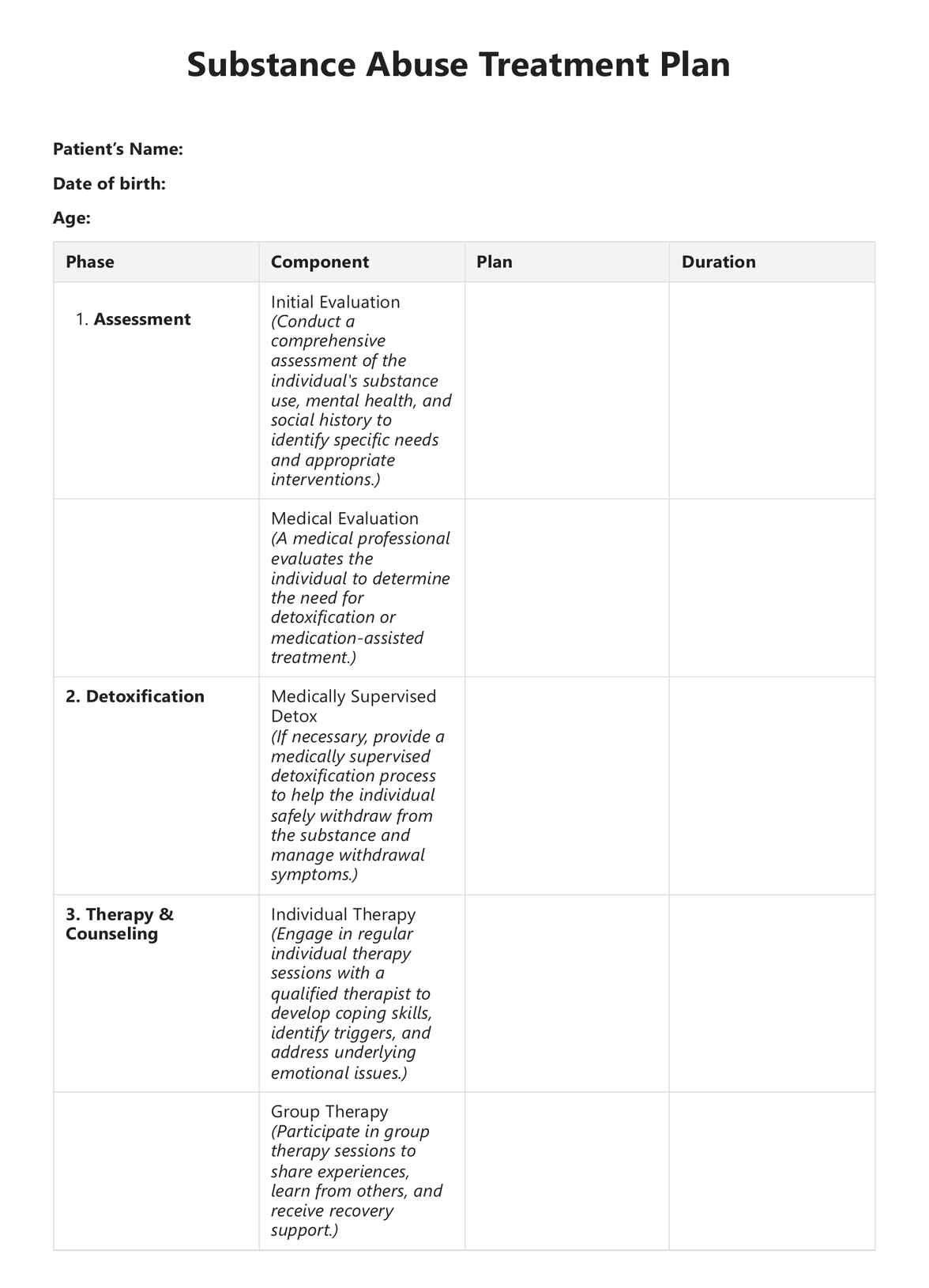Substance abuse treatment plans are used by various professionals involved in treating individuals with substance use disorders. These professionals may include addiction specialists, psychiatrists, psychologists, social workers, therapists, counselors, case managers, and other healthcare providers.

Substance Abuse Treatment Plan
Discover the essentials of a substance abuse treatment plan, how it works, and its benefits. Get your free substance abuse treatment plan template here.
Substance Abuse Treatment Plan Template
Commonly asked questions
A substance abuse treatment plan is used throughout the entire treatment process, from the initial assessment to aftercare and relapse prevention. It serves as a guiding document that outlines the individual's specific needs, goals, and strategies for recovery, and it is regularly updated to reflect their progress and any changes in their circumstances.
The frequency of updating a substance abuse treatment form depends on the individual's progress and the specific components of their treatment plan. Generally, reviewing and updating the plan regularly—at least every 30 to 90 days—is recommended to ensure that it remains relevant and effective. Additionally, any significant changes in the individual's circumstances or treatment needs should prompt an immediate update to the plan.
EHR and practice management software
Get started for free
*No credit card required
Free
$0/usd
Unlimited clients
Telehealth
1GB of storage
Client portal text
Automated billing and online payments











